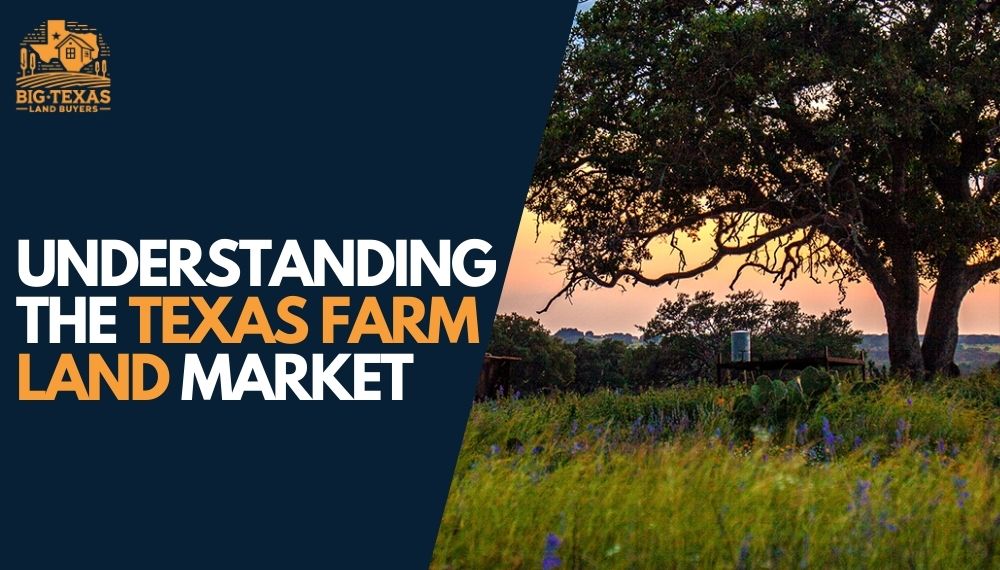How to Get Farm Land for Sale Texas
Texas is renowned for its vast landscapes, rich soil, and a long tradition of agriculture. Whether you’re an aspiring farmer, a seasoned rancher, or simply someone looking to invest in rural property, acquiring farm land for sale Texas can be a rewarding venture. With its diverse climate, favorable growing conditions, and a strong agricultural economy, Texas offers countless opportunities for those interested in farming. In this guide, we’ll explore the steps you need to take to find and purchase farm land for sale Texas, ensuring you make an informed and successful investment.
Understanding the Texas Farm Land Market

Before diving into the process of acquiring farm land for sale Texas, it’s essential to understand the market dynamics. Texas is one of the largest states in the U.S., with a diverse range of agricultural regions. The value of farmland can vary significantly depending on location, soil quality, water availability, and proximity to markets.
1. Regional Differences:
Texas is divided into several agricultural regions, each with its unique characteristics. For instance, East Texas is known for its piney woods and fertile soils, making it ideal for timber and crop farming. The Texas Panhandle, with its vast open spaces and flat terrain, is suitable for large-scale cattle ranching and wheat farming. Meanwhile, Central Texas is a hub for vineyards, orchards, and organic farming. Understanding these regional differences will help you narrow down the best area for your farming needs.
2. Land Values:
The value of farm land for sale Texas is influenced by several factors, including location, land size, and available amenities. Farmland close to major cities like Dallas, Houston, or Austin typically commands higher prices due to its potential for future development. On the other hand, more remote areas may offer lower prices but could require additional investments in infrastructure. Researching land values in your desired region will give you a better idea of what to expect in terms of cost.
3. Water Rights and Availability:
Water is a crucial resource for farming, and in Texas, water rights can significantly impact the value and usability of farmland. Some areas have ample groundwater supplies, while others may rely on surface water or rainfall. It’s essential to investigate the water situation on any farm land for sale Texas that you’re considering. Ensure that the property has adequate water resources for your planned agricultural activities, whether it’s crop irrigation, livestock watering, or other needs.
Steps to Finding farm land for sale Texas

Finding the perfect farm land for sale Texas requires careful planning, research, and due diligence. Here are the steps you should follow to secure the right piece of land for your farming venture.
1. Define Your Farming Goals:
Before you start searching for land, it’s important to have a clear understanding of your farming goals. Are you interested in crop farming, livestock ranching, or a combination of both? Do you want to start a small organic farm or invest in a large-scale agricultural operation? Defining your objectives will help you determine the type and size of land you need, as well as the best location for your farm.
2. Set a Budget:
Determining your budget is a critical step in the land acquisition process. In addition to the purchase price of the land, consider other costs such as property taxes, insurance, infrastructure development, and equipment. Having a clear budget in mind will help you narrow down your search to properties that fit within your financial means. It’s also wise to explore financing options, such as agricultural loans or grants, to help fund your purchase.
3. Work with a Real Estate Agent:
Partnering with a real estate agent who specializes in rural properties and farm land for sale Texas can be invaluable. A knowledgeable agent will have access to listings that may not be widely advertised and can provide insights into the local market. They can also assist with negotiations, ensuring you get the best possible deal on your land purchase.
4. Explore Online Listings and Resources:
There are numerous online platforms dedicated to listing farm land for sale Texas. Websites like LandWatch, Zillow, and Texas Farm Bureau provide comprehensive databases of available properties. These platforms allow you to filter searches by location, price, acreage, and other criteria. Additionally, consider joining forums and social media groups where landowners and real estate professionals discuss land opportunities in Texas.
5. Visit Potential Properties:
Once you’ve identified a few promising properties, it’s essential to visit them in person. This allows you to assess the land’s condition, soil quality, and overall suitability for your farming plans. Pay attention to factors like topography, access to water, and existing infrastructure, such as fencing, roads, and outbuildings. If possible, bring along a soil expert or agronomist to evaluate the land’s agricultural potential.
6. Conduct Due Diligence:
Before making an offer on farm land for sale Texas, conduct thorough due diligence to ensure there are no hidden issues that could affect your purchase. This includes checking the property’s title to confirm ownership and ensure there are no liens or encumbrances. Investigate zoning regulations and land use restrictions to ensure your planned farming activities are permitted. Additionally, review any existing water rights, mineral rights, or easements associated with the property.
Financing Your Farm Land Purchase
Purchasing farm land for sale Texas can be a significant financial commitment. Fortunately, there are several financing options available to help you fund your land purchase and agricultural operations.
1. Agricultural Loans:
Several financial institutions offer agricultural loans specifically designed for purchasing farmland. The U.S. Department of Agriculture (USDA) provides various loan programs, including the Farm Ownership Loan and the Beginning Farmer and Rancher Loan, which offer favorable terms for new farmers. Additionally, private lenders, such as AgAmerica and Farm Credit, offer loans tailored to the needs of agricultural borrowers.
2. Grants and Subsidies:
In addition to loans, you may be eligible for grants and subsidies that can help offset the cost of purchasing farm land for sale Texas. The USDA and Texas Department of Agriculture offer several grant programs aimed at supporting sustainable agriculture, conservation efforts, and rural development. These grants can provide funding for land acquisition, infrastructure improvements, and environmental conservation projects.
3. Owner Financing:
In some cases, the seller of the farmland may be willing to offer owner financing, where you make payments directly to the seller over time rather than securing a traditional mortgage. Owner financing can be a flexible option, particularly if you have difficulty qualifying for a conventional loan. Be sure to negotiate favorable terms and have the agreement reviewed by a real estate attorney to protect your interests.
4. Partnerships and Co-Ownership:
If the cost of purchasing farm land for sale Texas is beyond your budget, consider forming a partnership or co-ownership arrangement with other farmers, investors, or family members. Pooling resources with others can make it easier to afford the land and share the responsibilities of managing the property. However, it’s essential to have a clear and legally binding agreement outlining each party’s rights, responsibilities, and profit-sharing arrangements.
Making the Most of Your Farm Land Investment
After securing farm land for sale Texas, the real work begins. To ensure your investment is successful, it’s important to develop a comprehensive farming plan, manage your resources effectively, and explore opportunities for growth and diversification.
1. Develop a Farming Plan:
Creating a detailed farming plan is crucial for the success of your agricultural venture. Your plan should outline your goals, the types of crops or livestock you intend to raise, and the methods you’ll use to manage your farm. Consider factors such as crop rotation, soil fertility management, pest control, and water conservation. A well-thought-out plan will help you maximize your farm’s productivity and profitability.
2. Invest in Infrastructure:
Depending on the condition of your newly acquired farm land for sale Texas, you may need to invest in infrastructure improvements. This could include building or repairing fences, installing irrigation systems, constructing barns or storage facilities, and improving access roads. Quality infrastructure is essential for efficient farm operations and can enhance the value of your property over time.
3. Explore Sustainable Practices:
Sustainable farming practices not only benefit the environment but can also improve the long-term viability of your farm. Consider adopting practices such as no-till farming, cover cropping, and organic farming to enhance soil health and reduce your reliance on chemical inputs. Additionally, sustainable practices can open up opportunities for selling your products in niche markets, such as organic or locally sourced foods.
4. Diversify Your Farm Operations:
Diversifying your farm operations can help mitigate risks and create multiple income streams. In addition to traditional farming activities, consider adding complementary enterprises such as agritourism, farm-to-table events, or value-added products like jams, cheeses, or herbal supplements. Diversification can make your farm more resilient to market fluctuations and weather-related challenges.
5. Stay Informed and Network:
The agricultural industry is constantly evolving, with new technologies, regulations, and market trends emerging regularly. Staying informed about industry developments and networking with other farmers and agricultural professionals can provide valuable insights and opportunities for growth. Consider joining local farming associations, attending agricultural conferences, and participating in online forums to stay connected with the farming community.
Conclusion
Acquiring farm land for sale Texas is a significant investment that requires careful planning, research, and dedication. By understanding the Texas farmland market, setting clear goals, and following the steps outlined in this guide, you can find the perfect piece of land to start or expand your farming venture.
Follow us:

